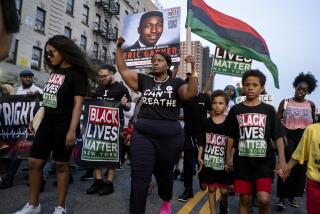Blacks suffering a stroke are more likely to call a friend than 911, study finds
A new study conducted by researchers at Georgetown University Medical Center in Washington, D.C., suggests that efforts to educate African Americans about stroke symptoms -- and what to do when they occur -- aren’t hitting the mark with this high-risk population.
The study was published this week in the journal Stroke.
Researchers surveyed 253 volunteers in one urban community and asked them what they would do if they had a stroke. Eighty nine percent of respondents said they would first call 911.
But when the team interviewed 100 actual stroke patients (or their proxies) and asked what they did when their strokes occurred, only 12% reported calling 911 first. Most -- 75% -- initially reacted to their symptoms by calling a friend or family member.
Many of these said they didn’t think their symptoms were serious or significant enough to warrant a call to 911, the researchers found. Some patients said they delayed calling for help because they didn’t think medical intervention could benefit them.
Another common misperception about stroke cited in the paper: Many patients didn’t realize they were having a stroke. Many said they thought chest pain was a common symptom. (For more on recognizing stroke symptoms, read to the bottom of this Booster Shots post from April.)
In general, calling a friend when one needs help isn’t a bad instinct. But when it comes to treating a stroke, precious minutes can make a tremendous difference. If a patient arrives at the hospital too late, he or she cannot receive treatments such as the medication tPA, which helps break up a blood clot, mitigating the long-term effects of the stroke.
In fact, blacks do receive tPA less often than whites do, study coauthors said.
“Such findings taken in aggregate indicate that current education campaigns are not achieving their goal in this target community,” the authors wrote. They called for further study of this reluctance to call 911, as well as new approaches to education about stroke symptoms.







